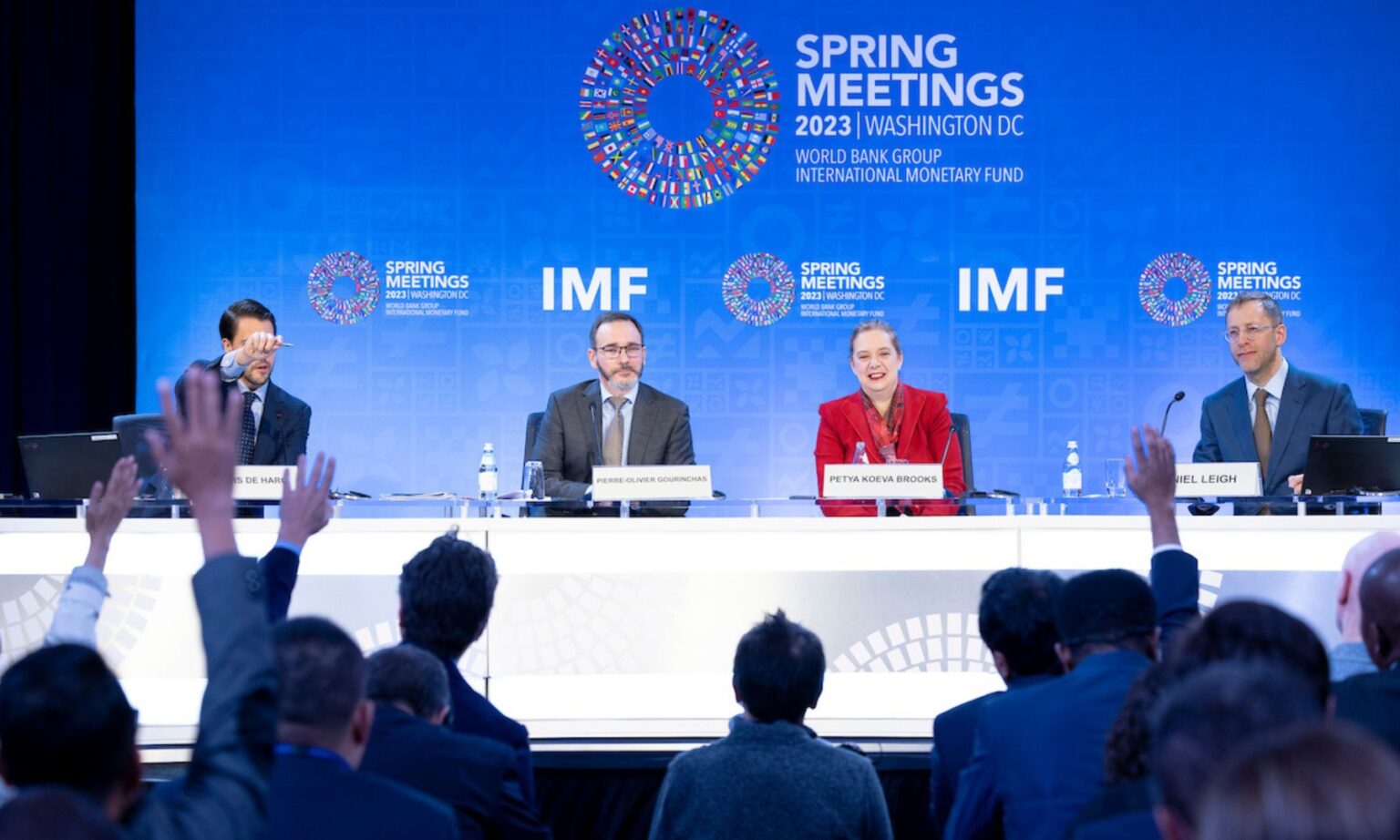- The International Monetary Fund (IMF) says global economic growth is set to decline marginally as ongoing banking industry turmoil raises uncertainties.
- IMF’s World Economic Outlook for April 2023 update indicates that global output will fall to 2.8 per cent in 2023 from 3.4 per cent last year, before rising to 3 per cent in 2024.
- Advanced economies to experience a slowdown to 1.3 per cent in 2023 from 2.7 per cent in 2022 as the world economy recovers from the unprecedented upheavals of the last three years.
Global economic growth is likely to decline marginally as the US banking turmoil raises uncertainties in the markets, the International Monetary Fund (IMF) has warned.
IMF’s World Economic Outlook for April 2023 update indicates that global output growth will decrease to 2.8 per cent from 3.4 per cent last year, before rising to 3 percent in 2024,
According to the report, advanced economies are expected to see an especially pronounced growth slowdown to 1.3 percent in 2023 from 2.7 percent in 2022 as the world economy recovers from the unprecedented upheavals of the last three years, and the ongoing jitters in the banking industry.
“Global headline inflation is set to fall from 8.7 percent in 2022 to 7 percent in 2023 on the back of lower commodity prices but underlying core inflation is proving to be stickier. Importantly, this outlook assumes that recent financial stresses remain contained,” said Pierre-Olivier Gourinchas, the IMF’s Chief Economist.
The fall of Silicon Valley Bank (SVB) in March continues to send shockwaves across the global banking industry. The lender’s failure marked the second-largest failure in US banking history and was quickly followed by the crash of Signature Bank, a New York-based financial institution that was deeply engaged in the volatile cryptocurrency industry.
Silicon Valley Bank, which had over $200 billion in total assets at the end of last year, primarily provided banking services to venture-backed technology companies.
Swiss banking giant Credit Suisse, a financial giant that is considered to be of systemic importance to the global economy was forced to merge with its longtime rival, UBS, to stop potential collapse.
Much uncertainty clouds the short- and medium-term outlook as the global economy adjusts to the shocks of 2020–22 attributable to the Covid-19 pandemic. Recession concerns have also gained prominence, while worries about stubbornly high inflation persist.
“Once again, risks are heavily tilted to the downside, they have risen with the recent financial turmoil. Most prominently, recent banking system turbulence could result in a sharper and more persistent tightening of global financial conditions. The simultaneous rate hikes across countries could have more contractionary effects than expected, especially as debt levels are at historical highs. There might be a need for more monetary tightening if inflation remains stickier than expected. These risks and more could all materialize at a time when policymakers face much more limited policy space to offset negative shocks, especially in low-income countries,” added Gourinchas.
With the fog around current and prospective economic conditions thickening, policymakers have a narrow path to walk towards restoring price stability while avoiding a recession and maintaining financial stability. Achieving strong, sustainable, and inclusive growth will require policymakers to stay agile and be ready to adjust as information becomes available.
“First, as long as financial stress is not systemic as it is now, the fight against inflation should remain the priority for central banks. Second, to safeguard financial stability, central banks should use separate tools and communicate their objectives clearly to avoid unwarranted volatility. Financial policies should remain laser focused on preserving financial stability and watch for any buildup of risks in banks, non-banks, and the real estate sectors.
“Third, in many countries fiscal policy should tighten to ease inflation pressures, restore debt sustainability, and rebuild fiscal buffers. Finally, in the event of capital outflows that raise financial stability risks, emerging market and developing economies should use the integrated Policy framework, combining temporary targeted foreign exchange interventions and capital flow measures where appropriate,” said Gourinchas.
